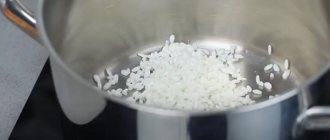At what age can a child be given sour cream? This is a question many young mothers ask. So, experts do not recommend giving sour cream to the youngest children. Moreover, even a one-year-old child should not be fed sour cream; it is better to replace this product with low-fat yogurt. It will be much more useful. After all, sour cream contains a significant amount of fat, which can cause stomach upset and even allergies in the baby. Therefore, pediatricians advise starting to feed your child sour cream no earlier than two years of age. You will learn more about all this from this article.
A little about the main thing
At what age can a child be given sour cream? The answer to this question interests many parents. After all, not all adults know about the specific age at which a child can be fed such a dairy product.
Pediatricians recommend starting to give sour cream to children no earlier than two years of age. Moreover, this fermented milk product should not be very fatty (no more than 10%). After all, the child’s pancreas at this age is not yet fully formed. Therefore, it is not worth loading it too much.
In addition, it must be said here that children prone to allergies should not be given sour cream before the age of three. Until this age, you should replace this fermented milk product with low-fat yogurt. This needs to be remembered.
The benefits of sour cream
Almost all adults like to add this fermented milk product to first and second courses. Moreover, many housewives use sour cream to prepare tasty and rich dough. But what is the benefit of this fermented milk product and is there any? The answer to this question interests many parents who are trying to teach their little children to eat sour cream.
The benefits of this fermented milk product are directly related to its composition. Sour cream contains:
- proteins that are very well digestible, as well as valuable amino acids necessary for the growth and development of the child’s body;
- calcium, magnesium, phosphorus, copper, iodine, zinc, selenium, sodium - all these microelements help strengthen the baby’s bones, normal functioning of the heart and nervous system;
- carbohydrates, they are so necessary for energy production in the child’s body;
- fatty acids are responsible for the absorption of fat-soluble vitamins and improve the child’s appetite;
- There are a lot of B vitamins, which are responsible for the formation of the baby’s immunity, as well as for the health of nails, hair and skin.
Moreover, this fermented milk product gives dishes a simply amazing taste. So its benefits are undeniable not only for adults, but also for children.
Do children need sour cream?
14.05.2020 5410 0
Children need sour cream as an additive that makes food more varied. It makes the soup taste better. In addition, it plays the role of a harmless sauce or suitable salad dressing *.
Put a little sour cream in the cottage cheese - it will be easier for your child to eat it.
Here you can diversify not only the consistency and taste, but also your joint activities. Invite him to add sour cream to the dish himself and stir - the simplest version of playing cook.
Why should children be given sour cream?
Sour cream is a fermented milk product: it contains the same set of nutrients as yogurt. The difference is the increased fat content.
Sour cream contains **:
- squirrels
- fats
- calcium and phosphorus
- prebiotics
- probiotics
- vitamins A, B1, B2, B12
The starting material for sour cream is cream. They undergo lactic acid fermentation. This means that special bacteria are added to them - probiotics, which convert lactose (milk sugar) in cream into lactic acid. When lactic acid is in the intestines in adequate quantities, it prevents microbes that cause intestinal infections from multiplying ***.
Sourdough microorganisms process raw milk components into prebiotics. Prebiotics are substances that are “tasty” to beneficial microbes in the intestines.
Lactic acid bacteria are called probiotics because they, when ingested with food, improve human health. By settling in the intestines, probiotics stimulate the immune system and help digest food*.
Sour cream for children: at what age can it be added to dishes?
Sour cream begins to be given to children from 1 year of age: added to soup *. It is introduced later than fermented milk drinks. After a year and a half, the salad is flavored with sour cream and served with cottage cheese casserole. Children usually like cottage cheese with sour cream more than without it.
Use sour cream to draw a funny face on a casserole or other dish suitable for “drawing.” We gather around the table not only to consume nutrients, but also to spend quality time together.
We recommend giving 5-10 g of sour cream per day with a fat content of 10-15% **. This is about a teaspoon. To be sure whether your child can have sour cream, first let him try just a little of this product.
When are doubts about sour cream justified? If your baby cannot tolerate dairy products: kefir, yogurt, butter, you cannot feed him sour cream either. Sour cream is a creamy taste in soup, a healthy fermented milk product, and a means for serving dishes in a non-standard way.
Sources:
* https://www.pediatr-russia.ru/sites/default/files/nacprog1-3(2019).pdf ** https://cyberleninka.ru/article/n/sovremennye-podhody-k-pitaniyu-detey -ot-odnogo-goda-do-treh-let/vi… *** https://cyberleninka.ru/article/n/primenenie-kislomolochnyh-produktov-v-pitanii-detey-opyt-i-perspek…
(0 ratings; article rating 0)
Share Share Share
When and what kind of sour cream should I give to babies?
Parents need to be very careful with the nutrition of their children. Therefore, it is not recommended to give sour cream to children under one year of age. This can cause not only allergies, but also serious problems with the gastrointestinal tract. After all, this fermented milk product is quite fatty.
Nevertheless, here I would once again like to answer the question of many caring mothers and fathers about at what age can a child be given sour cream. In the absence of allergies and any digestive problems, you can begin to introduce this fermented milk product into your diet from the age of two. But with extreme caution. In this case, sour cream should be taken with a fat content of no more than 10%.
Children from 2.5 years to three and a half years can be given the specified fermented milk product with a fat content of 15%. From the age of four, children are allowed to give even 25% sour cream. This fermented milk product with even higher fat content is not recommended for children. All parents need to take this into account.
Dating rules
After 2 years, the child’s menu can be varied with low-fat (10%) sour cream. For the first test, 1 tsp is enough. in porridge or salad. If tolerated well, it is recommended to treat your baby no more than 2-3 times a week.
From 2 to 2.5 years, preference is given to 10% dietary sour cream, which is more reminiscent of kefir in visual and taste qualities. Children over 2.5 years old are introduced to a diet with a thicker, low-fat 15% product; over 3 years old, they switch to 25% fat content. But at any age, moderation is important: no more than 2-3 tsp. in a day.
Sour cream is used as a sauce for cottage cheese, casseroles, cheesecakes, and as a dressing for fruit and vegetable salads. It improves the taste characteristics of soups, borscht, cabbage soup, and porridge. Fish, meat and vegetables stewed in sour cream have a mild taste and delicate texture.
Important
When answering the question about at what age can a child be given sour cream, it must be said that this can be done from the age of two. Moreover, this product should only be dietary (fat content no more than 10%).
Delicious, yellow sour cream with a creamy taste and a fat content of 48 percent is allowed to be consumed only by teenagers who are not prone to obesity. But they should only eat this product in small quantities due to its high fat content.
Do not forget that if sour cream contains a lot of fat, it contains little protein.
How to define quality?
When choosing sour cream for a child, not only its fat content is of particular importance, but also its naturalness, which is confirmed by several aspects:
- shelf life. It should not exceed a week. If the packaging indicates that storage is permissible for more than 7 days, it means that the composition is replete with vegetable fats and/or preservatives;
- the absence of any clots, for example, curdled ones. Also, there should be no liquid in it that separates from the main mass. Such signs indicate that this is not sour cream, but a product made on its basis;
- storage rules. The label must indicate that freshness will be preserved at a certain temperature (from 0⁰С to +4⁰С);
- composition. It should not contain any extraneous ingredients (water, stabilizers, flavors, flavor enhancers, vegetable oils), except for cream and sourdough.
Is there any harm possible?
It has already been written earlier that sour cream is simply a unique product in its composition, because it contains all the vitamins and microelements necessary for a growing body. But can its use negatively affect the child’s health? This is indeed a very interesting question.
Due to the fact that the digestive system of a child who is not yet two years old is not sufficiently formed, it is not recommended to give him sour cream at this age. Because this will lead to bloating, pain and even diarrhea. For this reason, the baby’s parents will have to refrain from introducing this fermented milk product into their child’s diet until a certain age.
In addition, consuming sour cream will not be beneficial for a child in the following cases:
- if you are allergic to lactose, then you do not need to give this product;
- sour cream purchased from a retail chain may contain substances harmful to the child’s body;
- if you give your baby this fermented milk product in large quantities, it can lead to obesity;
- in a situation where sour cream has already expired, there is no need to add it to the child’s food, this can lead to food poisoning and very serious consequences.
All parents need to remember these simple rules.
FAQ
The age at which sour cream can be given to a child starts at two years old. It is then that parents can give their baby this product to try. But this must be done with extreme caution.
When can you give your child sour cream if he is allergic to certain foods? The answer to this question is very ambiguous. Firstly, if the baby is allergic to certain foods, then parents should consult a pediatrician before introducing sour cream into the diet. This needs to be remembered.
Until the age of three, experts generally do not recommend giving sour cream to children who have allergies. In such a situation, you need to limit yourself to low-fat yogurt.
As they grow older, teenagers who previously had allergies can consume a small amount of low-fat sour cream, adding it to the first and second courses. But even in this case, it is better to consult a specialist.
When can you give your child sour cream and what to do if the baby does not want to taste this fermented milk product? This is a question many young mothers and fathers ask. So, there is no need to feed a child with sour cream until he is two years old; it is contraindicated. As your baby gets older, you can try adding it to soup, main course, or fruit salad. If the child does not like the taste of this product, then he should not be force-fed. It is possible that in the future the baby himself will show interest in sour cream and want to taste it. This must be taken into account.
How to choose a product?
Is it possible to give sour cream to a child? The answer in this case will be positive. Nevertheless, parents need to be very careful when choosing this fermented milk product.
You should only choose sour cream for your child in the store, not in the market. Moreover, you need to pay special attention to the composition of the product and its shelf life.
It should also be noted that real sour cream contains only sourdough and cream. All other thickeners and other additives will indicate that the fermented milk product is not natural. The longer sour cream can be stored, the less useful it is. This rule must be remembered.
Criterias of choice
When you decide to introduce your baby to sour cream, follow certain rules when choosing this product.
- The ideal option is homemade sour cream, of which you are confident. It is not recommended to take it from the market, as it may be excessively greasy, and there is also a possibility of non-compliance with sanitary standards.
- When buying sour cream in a store, you should pay attention to its composition, which should contain only natural ingredients, no stabilizers, preservatives or vegetable fats. Good sour cream should contain only sourdough and cream.
- When choosing sour cream for toddlers, you should give preference only to those that can be stored for no more than seven days.
- Pay attention to the inscription on the packaging. If “GOST” is indicated, then the product is natural and of high quality, if “TU” - manufacturers can add additives by changing the specified composition.
- It is important that the sour cream you give to your child does not have lumps, separated liquid, unpleasant odor or mold islands. If any liquid is found in sour cream, this indicates improper storage and the product is lost. If there is graininess or lumps, it means that the technological process was disrupted, for example, dry cream was used.
- It is unacceptable to buy your child a product called “sour cream”, “sour cream product”, “sour cream”. These names may indicate unnaturalness.
- It is unacceptable to give a child a product that has expired or from a package whose integrity has been damaged.
Now you know at what age you can introduce a fermented milk product such as sour cream into a child’s diet. Remember the value it has. Do not forget that if you abuse sour cream, negative manifestations may occur that are harmful to the child’s body.
Helpful information
Some parents, trying to diversify their baby’s diet, often turn to pediatricians with the question of how many months can a child be given sour cream and whether such a product is allowed to be introduced into complementary foods. In fact, everything is very simple here. Children can start giving sour cream only from the age of two. Therefore, there is no question of parents feeding a child who is several months old with such a fermented milk product.
Is it possible to give sour cream to a one-year-old child? According to existing special standards, feeding a baby with sour cream at this age is unacceptable. Because apart from pain and bloating, the child will receive nothing. The benefits of sour cream are out of the question here. This product should be given to a child no earlier than two years of age. All parents must know this.
Properties of sour cream
High-quality sour cream contains choline, vitamins A, D, E, B6, B12, folic acid, thiamine, niacin. Its use supports full metabolism, strengthens the health of the nervous system, and stimulates the digestive tract. Sour cream is a source of calcium, iron, zinc, phosphorus and other minerals involved in the construction of muscle and bone tissue, hematopoiesis, and the functioning of the endocrine system. Lecithin, of which there is a lot in the product, protects against damage to brain cells, ensures the development of intelligence and strong memory. Linoleic and other fatty acids reduce the risk of pathologies of the heart and blood vessels.
Fermented sour cream protein is absorbed in the body very quickly, and fermented milk cultures suppress the processes of putrefaction in the intestines. Therefore, despite the high fat content, this product is considered almost dietary. It is recommended for children with low body weight, poor appetite and various digestive disorders.
Sour cream is contraindicated for children with intolerance to milk sugar - lactose. A high-fat product can be harmful for diseases of the liver, gallbladder, and pancreas. Regular overeating leads to excess weight due to high calorie content. For these reasons, it is not advisable to introduce the product into complementary foods without first consulting a pediatrician.











